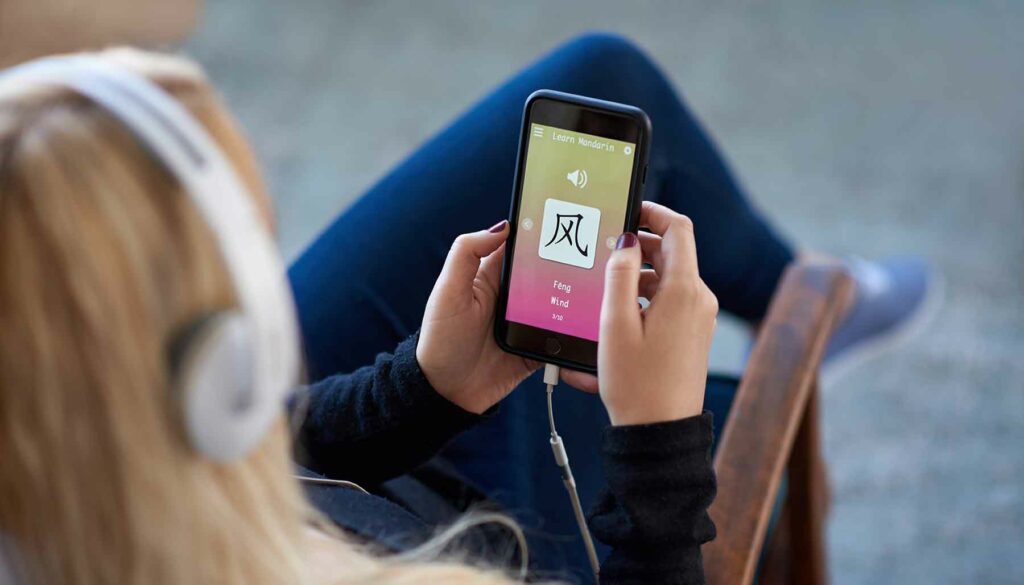Today’s world is more interconnected than ever. Clearly, proficiency in another language is a vital skill that can help you both in the professional sense and in your personal life. From communicating with customers and colleagues in other countries, to traveling around the world with confidence, knowing other languages can be extremely useful.
But you don’t have to be a business exec or a well-traveled globetrotter to reap the benefits of learning a second language. There are plenty of other reasons why everyone should pick up a new language, and some of them don’t even involve travel at all. As it turns out, being bilingual is good for your mental health as well as your cognitive health. Check out all these reasons to finally learn a new language!
Related: Learning a new language is one of my 40 fun hobby ideas!
Improves Your Memory and Other Cognitive Functions

We all know that we should never stop learning, right? All that continued education definitely helps our brains. It can boost our memory, stave off cognitive decline, improve our ability to multitask, and even result in better critical thinking skills. But more often than not, we don’t typically realize that this applies to learning a second language, too!
People who speak more than one language have better memory, improved critical thinking skills, better concentration, and even better listening skills. And in the long run, learning a new language can help reduce the risk of Alzheimer’s disease and other forms of dementia.
Improves Understanding of Your First Language
After spending a few years learning another language, I found a surprising benefit: I understood English better. I’m definitely no grammar expert or anything, but spending so much time learning sentence structures, how verbs or adjectives are used, tense, and other rules, it gave me a much better understanding of my first language.
Because we constantly speak and think in our native tongue, we often glaze over some of the grammar and vocabulary. By paying such close attention to it in a second language, I started paying more attention in English, too. This actually boosted my communication skills overall!
Boosts Confidence
So, I’ve already mentioned all the mental and cognitive benefits of learning a second language – in other words, you’ll be overall a smarter person. Plus, don’t forget about the improved understanding of your native language and boosted communication skills. But mastering a second language will also give you an amazing sense of accomplishment.
Put all that together, and you’ll probably start to feel pretty good about yourself! Overall, learning a second language can give your confidence quite the boost.

Perspective and Understanding Other Cultures
Even when I can’t hop on a plane, I like to “travel” with my mind. Along with reading books, watching documentaries, and listening to music, learning a language is another way to explore other cultures from around the world. Language can give insight into the people who speak it!
While you learn a second language, it can make you more aware of cultural differences. You will understand why they exist and appreciate them. You will also understand the importance of respecting cultures that are different from your own. This can inspire everyone to be more tolerant, accepting, and empathetic.
Changes Your Traveling Experiences
I know it’s obvious, but it deserves to be said. Learning a country’s language before you travel there will change your travel experience entirely. Other travelers are capable of visiting the same place, but they just won’t have the same experience without learning the language.
You won’t have to worry about how to get around or other issues caused by language barriers. You’ll be able to converse with locals freely, order food without pointing at pictures, and maybe even go beyond the touristy attractions to really experience your destination. I guarantee that the locals will appreciate the effort, too. All in all, you’ll have an experience that’s inaccessible by those monolingual travelers.

Ideas for Languages to Learn
Which language you choose to dive into is mostly decided by personal preference. However, there are a few languages that are exceptionally ideal to learn as a second language. At least, I think so!
Spanish
Spanish is the second most commonly spoken language in the world, with around 405 million native speakers worldwide. Sounds like you’ll get plenty of use out of learning this one! In fact, there are more Spanish speakers in the United States than in Spain, so you never even have to leave the U.S. to use this language.
Spanish is one of the easier languages to learn for native English speakers because there are a lot of similarities between the two. Plus, you’ll find tons of practice materials readily available. Even watching Spanish-language shows on Netflix counts, because it helps you practice comprehension.

Chinese
Are you wondering what the most commonly spoken language in the world might be? Chinese tops Spanish to take the number 1 spot with more than 1 billion native speakers. Chinese is kind of like a large umbrella that includes many other dialects, such as Mandarin and Cantonese. They all use the same writing system, though.
Mandarin is the official language of China, so it’s probably the best place to start. With so many people around the world speaking Chinese, learning this one can open up a vast amount of business and travel opportunities. Just be prepared to work hard, though, because it is challenging for English speakers to learn.
French
French is spoken on five continents and is also the official language of 29 countries. There are more than 300 million French speakers around the world. French is obviously the official language of France, but you’ll also likely find it easier to communicate with locals in countries like Switzerland, the Congo, and French Polynesia. Even in the U.S., we have tons of words borrowed from the French language. All in all, this one is really useful – even if you’re not traveling to France any time soon.
All that aside, French is often called the language of love! It has a melodic rhythm that makes even the most mundane words sound romantic enough to make hearts flutter. That’s reason enough for me to learn French.
Where To Learn a New Language
When I was in grade school and college, language classes were usually part of the required curriculum. While they taught basic Spanish in elementary school, upper grades let us choose from a few different options. Regardless of the language, though, those options were there. It was easy to get it done.
As an adult, it’s much more difficult to figure out how to learn a new language. I mean, I don’t think my old high school is going to let me back in. So where do you go as an adult? These days, the answer is the internet mostly.

Language apps and websites are a dime a dozen, but there are some that are definitely effective.
Rosetta Stone
Yep, it’s that same language software that was peddled in the ‘90s through commercials and mall kiosks. It’s been around this long because it’s effective, and is one of the most expert-approved programs out there. The bulky boxes of CDs are gone these days and have been replaced with a website and an app. This one requires a monthly subscription, or you can shell out the big bucks for a lifetime subscription.
Duolingo
I have definitely dabbled in Duolingo, and it’s a great starting point for anyone looking to learn a new language. With its cute owl mascot and game-like setup, it will keep your lessons interesting. It is also a great way to break up learning into bite-size lessons that can easily be done when you have a few minutes of downtime. You’ll find that Duolingo is great at introducing vocabulary and some expressions, but it doesn’t really go beyond that. It will teach you words, but there is no real context on how to use them in conversation. There is a free version and a premium subscription option.
Babbel
Although this one is also an app, it bumps it up a notch from Duolingo’s offerings. The lessons are accompanied by videos, games, and podcasts. In addition to their regular subscription, Babbel also offers a second program, Babbel Live. This utilizes live virtual classes led by language teachers. The first lesson in each language is offered for free on Babbel’s regular self-study program. After that, you’re looking at a monthly subscription or a lifetime subscription for that forever access to all the languages.
Pimsleur
If you are serious about learning a new language or two, Pimsleur comes highly recommended. It is based on a method created by an accomplished academic who did ground-breaking research on memory and learning language. Unlike word-focused apps like Duolingo, Pimsleur is a more rigorous program of combined learning techniques that will help you learn in a conversational context. The site offers 51 different languages to choose from. Pimsleur offers access to all their language programs for $21 a month.













